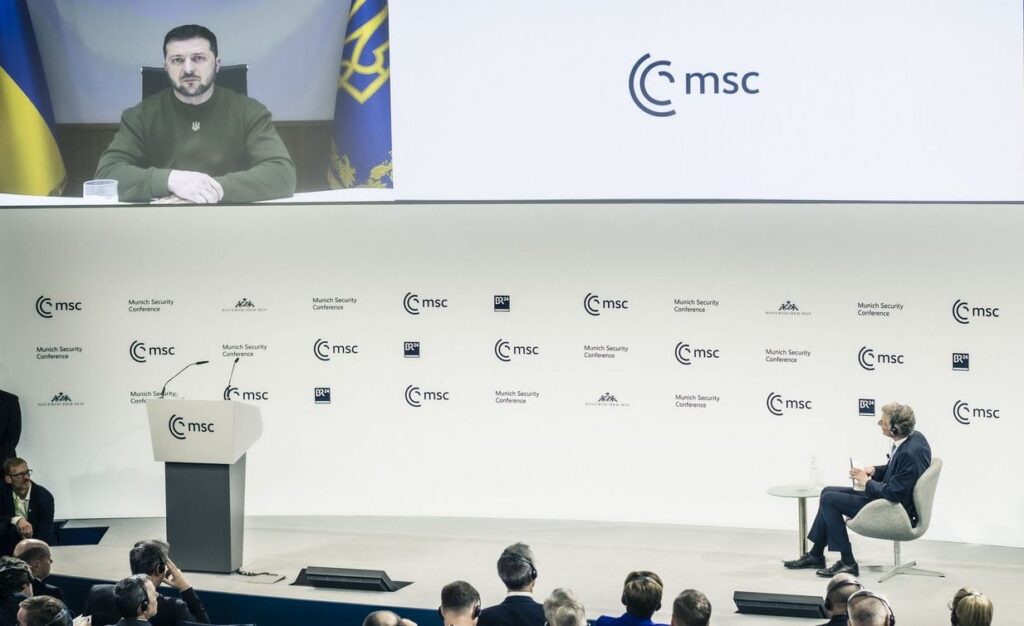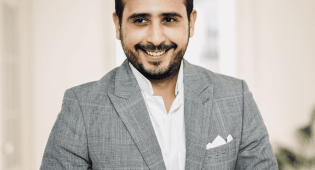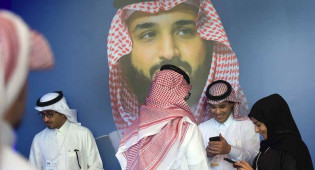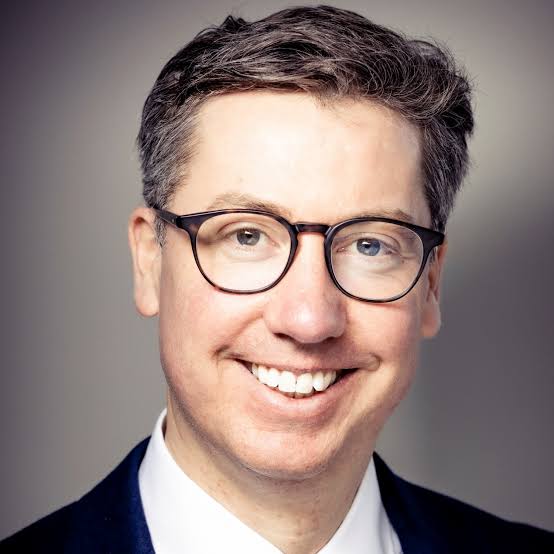
Analysis
News
Publié le : 18/12/2023
Benedikt Franke : We need to better understand the Global South
Benedikt Franke is Vice-Chairman and CEO with the Munich Security Conference (MSC). Before joining the MSC, he served as Senior Advisor for Strategic Affairs at the CSU and previous to that he was the Special Assistant for former Secretary-General of the United Nations and Nobel Laureate Kofi Annan.
Benedikt Franke publishes regularly on foreign and security policy topics and sits on a number of relevant committees such as the Foundation Council of the International Charlemagne Prize of Aachen and the International Commission of the CSU.
Benedikt Franke was the guest of the Newsroom to talk about Defense, European geopolitics and, more broadly, the links between the West and the Global South.
The success of the Munich Security Conference (MSC) is now firmly established. The forum initially brought together transatlantic security and defense experts in an almost secret set up. Today, it’s a major event on the global governance agenda. What is the secret of this success, and can you give us a sneak preview of the next edition’s program?

Our aim is to be the world’s leading forum for debating international security policy. During the last couple of years and given the multitude of current international and global crises, addressing the world’s most pressing security concerns has continued to gain relevance.
We define ourselves as a serious place for serious people. A forum where the relevant, consequential, and uncomfortable debates take place. We do not host a show in Munich. And we are also not only talking about trending topics just because they are ‘en vogue’. Our main objective is to focus on the most important and relevant matters, irrespective of how uncomfortable they are to talk about.
Over the last 60 years, we have gained the trust of our audiences to be able to curate a program that is not only superb and engaging, but also capable of hitting the nail on the head. You will never hear empty phrases at or from the Munich Security Conference.
“At the Munich Security Conference, we are all about identifying and addressing the elephant in the room.”
Benedikt Franke
At the Munich Security Conference, we are all about identifying and addressing the elephant in the room. Actually, when you look at some of our events, you will always see a little elephant placed somewhere in the room to remind the audience that this is precisely what the MSC is there for: to discuss issues that participants would normally be hesitant to talk about in an official context. At the MSC, we mainly aim at three things: First, to put current topics on the agenda that need to be addressed. Second, to put topics back on the agenda that have been overshadowed by other events. And third, to enable conversations between political actors that would otherwise not happen.
For next year’s conference, we will further strengthen our focus on the so-called Global South. We need to better understand why our narrative of a rules-based international order appears increasingly less attractive to so many countries, regimes, and people in the non-Western world.
The war in Ukraine seems to be accelerating Europe’s geopolitical awakening. Will the €100 billion announced by Olaf Scholz a year ago for the Bundeswehr and the new military programming law in France be enough to finally make the “Europe of Defense” a reality?

Many countries in Europe undoubtedly experienced a geopolitical awakening in February 2022 – and Germany in particular. Chancellor Olaf Scholz famously referred to this awakening as a ‘Zeitenwende’ for Germany – a ‘turning point in history’. On a side note: The chancellor actually ‘borrowed’ the term from us which we used as the overarching theme for our main conference in 2020 – two years before Russia’s invasion into Ukraine. In this context, Scholz and the German Federal Government committed one hundred billion Euros to the Bundeswehr – in addition to the annual federal budget.
“The truth is: We are not resilient enough”
Benedikt Franke
However, even though this allows Germany to finally meet NATO’s target for member states to spend at least 2% of their annual GDP on defense, this effort might simply not be enough for a multitude of reasons: Not only are inflation and high personal costs preventing investments in the right fields, but Germany has recently focused more on investing in building capabilities that — and the Ukraine war demonstrates this — may simply not be the ones we will need in case of a large-scale conflict. Moreover, the sustainability of the investment remains uncertain, as funding needs for the Bundeswehr will remain high in the upcoming decade.
The truth is: We are not resilient enough. We are not mobile enough. We are not flexible enough. And therefore, a lot more remains to be done. However, as an officer myself, I begin to see that investments are starting to bridge certain gaps, that the state of the previously underfinanced military is improving, that equipment is arriving, particularly down to the troop levels. There is a feeling within the German Army that things are going to improve. The Zeitenwende has certainly encouraged a positive attitude among most German soldiers.
In addition, Germany has also begun to reduce the troop strength of our foreign missions, including the international withdrawal from Afghanistan or the recently finished withdrawal from Mali – parallel to France’s withdrawal from the region. The refocus on national and collective defense instead of peacekeeping operations enables Germany to increasingly take measures to deter potential adversaries from executing attacks on Germany and other NATO member states.
However, France and Germany together will not be able to transform European defense on their own. What I do find amazing is to see Poland and other Eastern European countries such as the Baltic countries to assume a leading role in European defence, consequently resulting in an eastward shift of the center of gravity regarding the European defence community. Despite everyone currently looking at Sweden and Finland’s accession to NATO, it’s actually the overall state of Europe’s defence capabilities — across the board — what we should look out for. But let’s face the ‘elephant in the room’: So far, we are not able to act autonomously without the United States., And while the transatlantic relationship will hopefully survive the upcoming years – including the US elections in 2024 –, Europe needs to finally get its act together. And this first and foremost also includes that Germany and France need to run together in the same direction rather than in slightly divergent directions. We most definitely need a revival of ‘l’amitié franco-allemande’!
“We aren’t resilient enough. We aren’t mobile enough. We aren’t flexible enough.”
Benedikt Franke
Since the outbreak of the war in Ukraine, Berlin has been on the front line in supplying military equipment and training Kiev’s armies, despite its original hesitation to send Leopard tanks. What else can Germany do?

“Ukraine will have to find its place in the world.”
Benedikt Franke
I think there is still a lot to be done. Germany was indeed hesitant to send military equipment at the outbreak of the war because of the fear of not being able to fulfill our own commitments to NATO anymore. I believe that this was the wrong approach. Our freedom; our liberal and democratic values; our way of life are currently being defended at the frontlines by the Armed Forces of Ukraine and the Ukrainian population. If we want to preserve our freedom and our democracy, we have to equip the Armed Forces of Ukraine with everything it needs to defend their own country and consequently us as well. However, we must not forget that despite Ukraine currently being a country at war, it is also a country that will have to be rebuilt. I believe that all countries in Western Europe and particularly those in the EU should significantly increase their support for the ongoing reconstruction efforts.
Besides, we must increase our consciousness about the future integration of Ukraine in the international order. Once the war in Ukraine is finally over, Ukraine will have to find its place in the world. Our decisions now will contribute significantly to paving the way for a potential future accession of Ukraine to the European Union as well as a potential membership in NATO. It is now crucial to build extensive networks around the globe with genuine interests in Ukraine’s future. Our resources must be directed strategically, for example by already setting the right standards during the reconstruction of the country.
We also have to ensure that key players such as China, Turkey, or Saudi Arabia profit from Ukraine’s growth and development. Only then will everyone walk in the right direction. Long story short: I believe that Germany has done more from a military perspective than most, but, most probably, could still do more. The same is true for Europe and the transatlantic alliance at large.
Speaking of this European war: Russia was not invited to the last Munich conference. However, negotiations are still expected, and even wanted, by some of Ukraine’s allies. In your opinion, has the time come or does war still have sad days ahead?Remember that it was at your conference in 2007 that Vladimir Putin first clarified his threats concerning Ukraine and the enlargement of NATO, but he didn’t seem to have been taken seriously.
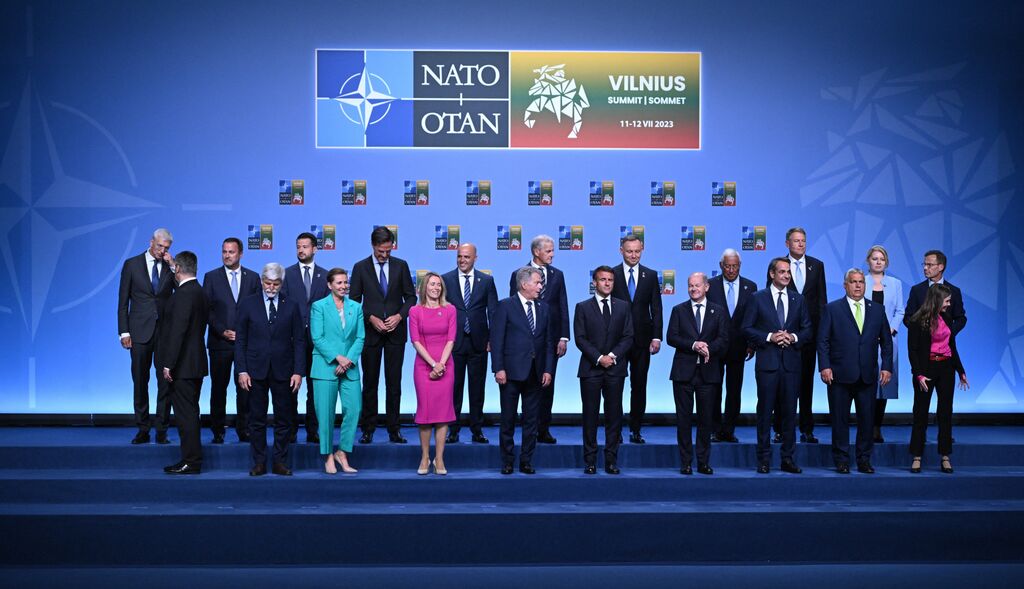
Indeed, we can spend an entire day discussing the question of whether we did not listen to what Putin said at the MSC in 2007; or that we just didn’t understand what he said; or whether we felt that it was simply an empty threat. We realized – some later than others – that when Vladimir Putin says something, he quite often means it literally.
This war will end in negotiations, one way or another. However, negotiations only work when both sides have a feeling that they have more to gain from talking with each other than from shooting at each other. As of now, I see no clear indication of any serious willingness or compromise from either side. On a personal note, I would like to stress one particular aspect: The territorial integrity of Ukraine should never be part of any negotiations. We shouldn’t ask Ukraine to do what none of us would be prepared to do, namely to give up totally legitimate demands.
It goes without saying that we all agree that it would be wonderful to stop the fighting, the killing, and the mounting death toll. And it would be wonderful to reestablish some kind of constructive relationship – between both countries but also between Russia and the Western hemisphere. However, we should not be fooled by the attractiveness of that thought and rather consider the harsh realities on the ground. At the same time, we must also start preparing for peace negotiations – even prior to the time when both sides conclude that they are willing to engage in such negotiations. We need to agree on security guarantees as well as on pathways into NATO and the EU as soon as possible. We need to be ready with common positions and clear plans so that they can already figure into negotiations, whenever they take place.
France is currently facing many difficulties in Western Africa (especially in the Sahelian band) consecutively with military coups and rebellions. Military leaders often demand the end of the security and military cooperation historically put in place with French support to replace it by private firms such as Wagner.Does this mean the progressive end of European anti-terrorism policies in Africa? How do you consider the future of policies of cooperation between Europe and African states on these security and fight against the development of global and regional terrorism?
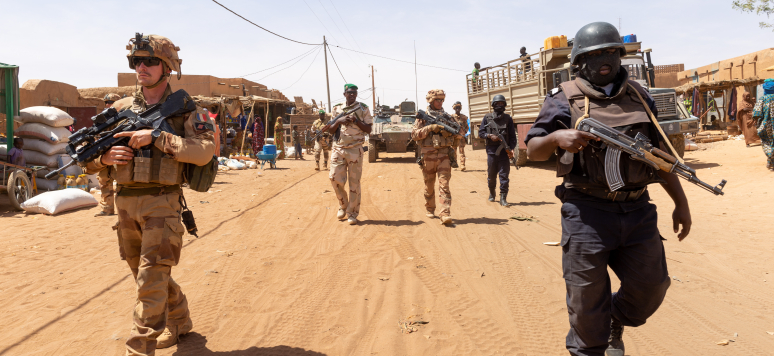
If we take one step back, we really need to ask ourselves where and how we got it so wrong. How did we end up losing influence and reputation in so many African states? How did we find ourselves in a situation where these states no longer want to cooperate with Western countries but with organizations like Russia’s Wagner group?
I don’t agree with the rather simplistic narrative which attributes everything to historic developments Much rather, it is a matter of realpolitik. We did not take those countries seriously. Instead, we focused on our interests while simultaneously neglecting and disregarding their priorities. We have dropped the ball and left a void for Wagner to profit from while dividing us in the meantime. We left behind a situation where the Russians had plenty of low hanging fruits to grab.
“I don’t think that BRICS represents a threat to the West”
Benedikt Franke
Solving this dilemma requires – among many other things – a collective effort and strong leadership by the European Union. Unfortunately, I do not see much to give me hope here at the moment.
The BRICS has been heard about recently, and it has not escaped you that this bloc is attracting more and more countries from the Global South. Apart from Russia and China which clearly oppose a political and civilizational counter-model, other member countries such as India are strategic allies for the West. But in your opinion, what should Europe do so that it is not overtaken, at least technologically, by this emerging group?

From my perspective, more multilateralism is always better than less multilateralism. I find it fascinating that some countries that have not yet been highly engaged in the multilateral sphere are now beginning to increasingly and more substantially work together. I recently travelled to India where I had the opportunity to discuss the Western approach to the expansion of BRICS with numerous decision-makers, including from BRICS member states.
Does the expansion actually represent a real threat to the West? I believe that the answer is more complex than this rather simplistic narrative. I believe that by aiming to find a single common policy between countries such as Saudi Arabia, Iran, Argentina, China, Indonesia, Brazil, Russia and South Africa, they ‘have bitten off more than they can chew’. I am keen to discover whether the expansion of BRICS will actually cause a deepening of economic cooperation and the extent to which BRICS simply poses a theoretical alternative to the current narrative by the West. It will be interesting to observe how and whether these very different countries and systems will be able to agree on common positions and policies. Personally, I don’t think — and these may be my famous last words — that BRICS represents a threat to the West. On the contrary, it adds yet another incentive to our list of reasons to get our act together.
